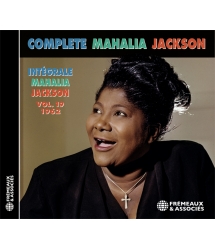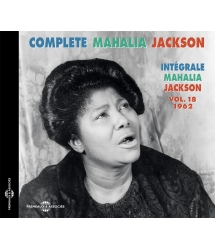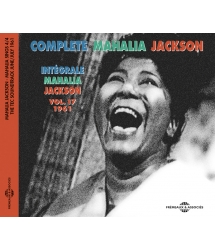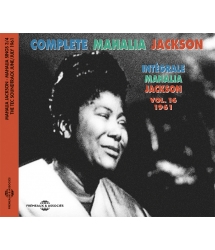- Our Catalog
- Philosophy
- Philosophers of the 20th century and today
- History of Philosophy (PUF)
- Counter-History and Brief Encyclopedia by Michel Onfray
- The philosophical work explained by Luc Ferry
- Ancient thought
- Thinkers of yesterday as seen by the philosophers of today
- Historical philosophical texts interpreted by great actors
- History
- Books (in French)
- Social science
- Historical words
- Audiobooks & Literature
- Our Catalog
- Jazz
- Blues
- Rock - Country - Cajun
- French song
- World music
- Africa
- France
- Québec / Canada
- Hawaï
- West Indies
- Caribbean
- Cuba & Afro-cubain
- Mexico
- South America
- Tango
- Brazil
- Tzigane / Gypsy
- Fado / Portugal
- Flamenco / Spain
- Yiddish / Israel
- China
- Tibet / Nepal
- Asia
- Indian Ocean / Madagascar
- Japan
- Indonesia
- Oceania
- India
- Bangladesh
- USSR / Communist songs
- World music / Miscellaneous
- Classical music
- Composers - Movie Soundtracks
- Sounds of nature
- Our Catalog
- Youth
- Philosophy
- News
- How to order ?
- Receive the catalog
- Manifesto
- Dictionnary











- Our Catalog
- Philosophy
- Philosophers of the 20th century and today
- History of Philosophy (PUF)
- Counter-History and Brief Encyclopedia by Michel Onfray
- The philosophical work explained by Luc Ferry
- Ancient thought
- Thinkers of yesterday as seen by the philosophers of today
- Historical philosophical texts interpreted by great actors
- History
- Books (in French)
- Social science
- Historical words
- Audiobooks & Literature
- Our Catalog
- Jazz
- Blues
- Rock - Country - Cajun
- French song
- World music
- Africa
- France
- Québec / Canada
- Hawaï
- West Indies
- Caribbean
- Cuba & Afro-cubain
- Mexico
- South America
- Tango
- Brazil
- Tzigane / Gypsy
- Fado / Portugal
- Flamenco / Spain
- Yiddish / Israel
- China
- Tibet / Nepal
- Asia
- Indian Ocean / Madagascar
- Japan
- Indonesia
- Oceania
- India
- Bangladesh
- USSR / Communist songs
- World music / Miscellaneous
- Classical music
- Composers - Movie Soundtracks
- Sounds of nature
- Our Catalog
- Youth
- Philosophy
- News
- How to order ?
- Receive the catalog
- Manifesto
- Dictionnary
INTEGRALE MAHALIA JACKSON 1959 1960
MAHALIA JACKSON
Ref.: FA1320
EAN : 3561302132020
Artistic Direction : JEAN BUZELIN
Label : Frémeaux & Associés
Total duration of the pack : 54 minutes
Nbre. CD : 1
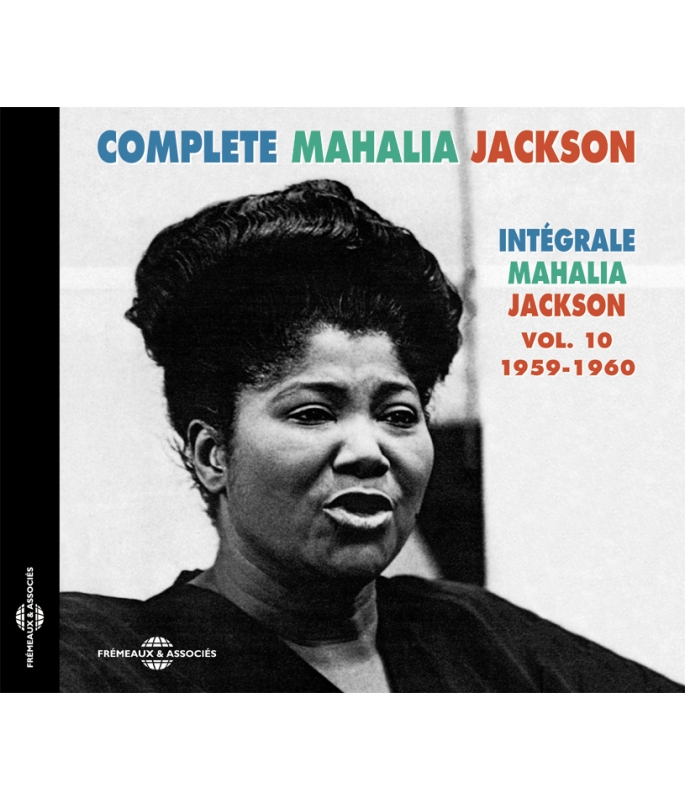
INTEGRALE MAHALIA JACKSON 1959 1960
INTEGRALE MAHALIA JACKSON 1959 1960
“Sing, oh black Mother, song is a strong thing.” Langston HUGHES’s poem “Spirituals“
The complete Mahalia Jackson recordings (presented chronologically as in the Sister Rosetta Tharpe series) reveal a personality who will remain one of the greatest-ever Gospel artists, a singer who filled 20th century Afro-American culture with inspiration. The source of this vital music is the collection of Jean Buzelin, the author of this anthology, together with the aid of collectors of Mahalia Jackson's work; all these recordings have been restored with the best analog transfers and most sophisticated technology available, to avoid any alteration of the original sound.
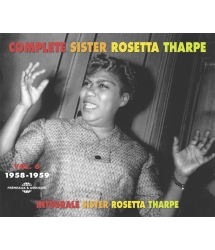
INTEGRALE 1958 - 1959
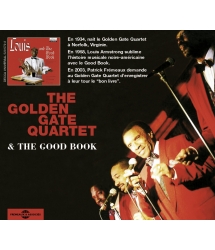
THE GOOD BOOK
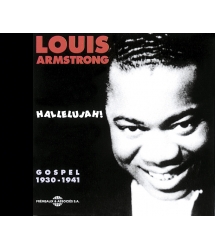
LOUIS ARMSTRONG
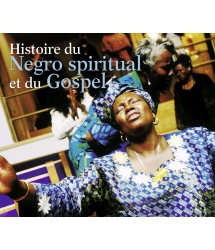




-
PisteTitleMain artistAutorDurationRegistered in
-
1Trouble of the worldMahalia JacksonTrad.00:02:551959
-
2He must have knownMahalia JacksonTrad.00:03:361959
-
3My journey to the skyMahalia JacksonTrad.00:04:161959
-
4Brown babyMahalia JacksonO Brown Jr00:05:361959
-
5You must be born againMahalia JacksonHamblen S.00:02:061959
-
6The christians testimonyMahalia JacksonWeston D00:02:401959
-
7If we never needed the lord before (we sure do need him now)Mahalia JacksonDorsey T A00:04:271959
-
8Come on children let s singMahalia JacksonH.Smith00:01:591959
-
9One step (toward the lord)Mahalia JacksonHoffman J00:03:301959
-
10Because his name is jesusMahalia JacksonExcell E O00:02:571959
-
11Keep a-movinMahalia JacksonBaron B00:03:171959
-
12A christian dutyMahalia JacksonWebb W00:03:271959
-
13In the gardenMahalia JacksonMiles C00:03:231960
-
14Just as I amMahalia JacksonElliott C.00:02:241960
-
15Rock of agesMahalia JacksonToplady A.00:04:351960
-
16Jesus savior pilot meMahalia JacksonHopper E00:03:451960
MAHALIA JACKSON VOLUME 10 F1320
COMPLETE MAHALIA JACKSON
INTÉGRALE MAHALIA JACKSON VOL. 10
1959-1960
En cette année 1959, la firme Columbia, l’une des plus importantes maisons de disques au monde, peut être fière. Elle a réussi à faire d’une grande chanteuse de gospel noire, une immense vedette aux Etats-Unis, l’égale des plus célèbres artistes blancs. Mahalia Jackson rejoint en cela Louis Armstrong, Sammy Davis Jr, Nat King Cole et quelques autres, et précède de quelques années Ray Charles. Que de talent et de persévérance doivent déployer les artistes de couleur pour rejoindre, sur les mêmes piédestaux, leurs confrères et consœurs qui n’ont pas ce handicap de la race.
Son impressionnante apparition dans le film « Imitation of Life (Mirage de la vie) » va lui donner un nouveau coup de pouce. Bien qu’il ne soit pas encore sur les écrans, Mahalia réenregistre en studio, un mois avant sa sortie (le 30 avril 1959), sa chanson Trouble Of The World, ses producteurs pressentant peut-être le futur succès du film. Elle avait déjà enregistré ce thème traditionnel trois ans auparavant, sur un rythme de gospel waltz un peu plus enlevé, et avec une durée plus importante. Ce titre figurait dans l’album « Bless This House » (1). Curieusement, cette nouvelle version, avec chœurs, ne sera publiée qu’en 45 tours uniquement, couplée avec Tell The World About It réalisé trois semaines plus tôt (2), et, à notre connaissance, jamais rééditée jusqu’à aujourd’hui. Deux autres excellents morceaux sont mis en boîte le même jour et complèteront, eux, la séance précédente qui donnera l’album « Great Getting up Morning ». Mahalia chante magnifiquement ces trois morceaux, My Journey To The Sky comportant des accents presque bluesy.
Puis la chanteuse reprend la route. Dans le Nord, elle se produit à Boston, à Baltimore, à Pittsburgh, à Buffalo, à New York… À Chicago, elle donne un benefit concert pour un preacher décédé. Elle se trouve dans le Sud, au Texas (Little Rock, Houston, Dallas), lorsque « Imitation of Life » est projeté sur tous les écrans du pays. En compagnie des Ward Singers, tout juste rentrées d’une tournée européenne, Mahalia Jackson participe au « First Annual Gospel, Spiritual and Folk Festival » qu’organise son agent Joe Bostic au Madison Square Garden. L’acteur Sidney Poitier l’introduit sur la scène (le ring !?) et elle dédie son concert au regretté révérend Russell Roberts, son ami.
Et voilà la Cadillac de Mahalia en route pour la Virginie… À Montgomery (Alabama), elle ne manque pas de rendre visite à son ami Martin Luther King et à sa famille. Parfois, elle voyage en chemin de fer : Tampa, Jacksonville, Orlando, Miami… se produisant désormais dans les plus grandes salles de concert, dans lesquelles on commence à apercevoir quelques “visages pâles” au milieu d’un public de couleur ; prémisses d’une intégration qu’on attendra longtemps ! Elle chante When The Saints à la télévision à Coco (Floride), près de Cap Canaveral, et “fait” une autre télé dans sa ville natale, la Nouvelle-Orléans.
Mahalia chante également pour le 50e anniversaire de la NAACP (National Association for the Advancement of Coloured People), fondée le 19 février 1909 par W.E.B. DuBois et quelques autres précurseurs des droits civiques. Cela se passe au Polo Grounds, le grand stade de Manhattan, devant 18.000 personnes. Elle se produit également au Hollywood Bowl (Los Angeles). Cet été-là, c’est l’organiste Elliott Beal qui l’accompagne en tournée, aux côtés de Mildred Falls.
Le 20 juillet, toujours à Los Angeles, elle enregistre un seul morceau, Brown Baby, la première composition du chanteur Oscar Brown Jr. Une interprétation de 5’30 à la fois dépouillée et majestueuse. En octobre, Mahalia Jackson est invitée à chanter à la Maison-Blanche pour les 69 ans du président Eisenhower.
Notoriété oblige, la chanteuse doit répondre à de multiples demandes. Outre les tournées à travers le pays, où ses fans se bousculent parfois tellement, comme à Louisville (Kentucky), qu’il faut demander à la police de lui frayer un passage pour qu’elle puisse sortir de son hôtel, elle doit faire face aux gens du métier, aux églises, à la famille, aux amis, aux importuns, etc., et cela ne va pas sans répercussion sur une santé toujours fragile. Elle doit lutter contre un gros rhume, et cela inquiète ses proches, Mildred Falls, James Lee, Willie Webb…
Mahalia vient de renouveler son contrat avec Columbia et se trouve en novembre à Los Angeles, où une session est organisée sur deux jours. C’est précisément Willie Webb qui tient l’orgue aux côtés de la pianiste Mildred Falls. Willie Webb est un ancien chanteur des Roberta Martin Singers ; il participe à la première séance du groupe en 1947 avant d’y tenir l’orgue dans les années 1952-53. Il a fondé en 1950 ses propres Willie Webb Singers, un groupe mixte sur le modèle de celui de Roberta Martin, dans lequel figure le jeune Alex Bradford. Il a également joué avec les Soul Stirrers lors d’une séance en 1957.
Quatre titres sont enregistrés le premier jour, dont trois courts morceaux très entraînants dans lesquels la chanteuse se libère totalement. You Must Be Born Again est une composition du chanteur de country gospel Stuart Hamblen, dont elle avait déjà chanté It Is No Secret en 1951 et His Hands en 1955 ; The Christian’s Testimony est une pièce de David Weston, écrite en 1955 ; et Come On Children Let’s Sing, une œuvre de l’organiste et chef de chorale Harold Smith, qui a enregistré avec elle en début d’année. Au milieu de cela, on a recours comme souvent à Thomas A. Dorsey, le “Père du gospel moderne”, avec une pièce peu connue, écrite en 1943, plus longue et plus calme, If We Never Needed The Lord Before.
Retour au studio le lendemain pour quatre autres morceaux, cette fois-ci majoritairement sur tempos lents voire arythmiques. Les chœurs sont un peu plus — trop ? — présents, les thèmes un peu éloignés de la grande tradition des negro spirituals, à part A Christian Duty, composé justement par Willie Webb. On appréciera toutefois un bel obligato du grand guitariste de jazz Jimmy Raney dans One Step. Ces huit titres, augmentés de Brown Baby, vont néanmoins constituer un album, intitulé « Come On Children, Let’s Sing », tout à fait estimable, et qui montre la chanteuse en pleine possession de son art.
Coup de fil de son producteur Irving Townsend, désormais vice-président de la Columbia depuis le départ de Mitch Miller, qui lui propose un enregistrement avec Percy Faith ! En France et en Europe, on perçoit mal la popularité de ces chefs d’orchestres, compositeurs et orchestrateurs de la “grande variété” américaine. Percy Faith (1908-1976), né à Toronto et naturalisé américain en 1945, s’est notamment illustré dans les musiques de films et de télévision. Proche de Mitch Miller, il travaille pour Columbia et écrit beaucoup d’arrangements pour des chanteurs comme Tony Bennett, Doris Day ou Johnny Mathis. Plus de quatre-vingts albums sous son nom seront publiés, et il obtiendra notamment un N° 1 Pop en 1960 avec le thème du film A Summerplace, musique de Max Steiner. Mahalia est quelque peu perturbée : « Je ne suis pas une étoile de l’opéra ! » répond-elle tout de go. Bien sûr, il y a eu le précédent avec Duke Ellington, mais elle était dans son monde, entre gens de mêmes racines, de même culture. La notoriété de Percy Faith l’impressionne, et elle ne se voit pas improviser librement, comme elle a pu le faire avec Duke, devant quarante musiciens. Le projet prévoit de lui faire enregistrer, non pas des negro spirituals ou des gospel songs, mais des hymnes américains qu’elle choisira elle-même. Elle attend plusieurs mois avant de donner son accord et répondre à l’invitation. Enfin, en février 1960, accompagnée de la fidèle Mildred Falls, elle se rend à Hollywood.
Quatre thèmes sont enregistrés le premier jour, dont Just As I Am, son hymne préféré, que la chanteuse avait déjà gravé en 1951 pour Apollo, dans une version beaucoup plus dépouillée (piano et orgue)(3). Ces titres ne surprendront d’ailleurs pas car ils ont été interprétés et enregistrés par quantité de chanteurs et de groupes de gospel. Ce qui surprend, ce sont évidemment les orchestrations, leur ampleur et l’omniprésence des violons et autres cordes. Nous sommes à l’évidence à cent lieues de la grande tradition musicale afro-américaine, mais Mahalia Jackson, qui a l’art de transmuter tout ce qu’elle touche, les chante merveilleusement, au point où l’on peut se demander si ces hymnes, dans un tel écrin, n’ont jamais été aussi bien chantés ! Aussi, même si nous sommes tentés, peut-on parler de grandiloquence alors qu’il n’y a aucune emphase ni la moindre affectation dans le chant de Mahalia ?
Le lendemain, elle enregistrera huit autres thèmes, et c’est avec ceux-ci que nous commencerons notre prochain volume.
Jean BUZELIN
© FRÉMEAUX & ASSOCIÉS
Jean Buzelin est l’auteur de Negro Spirituals et Gospel Songs, Chants d’espoir et de liberté (Ed. du Layeur/Notre Histoire, Paris 1998) ; il collabore à la Gospel Discography de Cedric J. Hayes & Robert Laughton (rubriques Mahalia Jackson, Sister Rosetta Tharpe, Golden Gate Quartet, etc.).
Notes :
(1) Voir Complete Mahalia Jackson Vol. 7 (FA 1317).
(2) Voir Complete Mahalia Jackson Vol. 9 (FA 1319).
(3) Voir Complete Mahalia Jackson Vol. 3 (FA 1313).
Ouvrages consultés :
Laurraine Gorreau : Mahalia (Lion Pub., UK 1976 - 2e édition)
Jules Schwerin : God To Tell It :Mahalia Jackson (Oxford University Press, 1992)
Anthony Heilbut : The Gospel Sound (Limelight Ed., 1992)
Cedric J. Hayes & Robert Laughton : Gospel Discography 1943-1970 (Eyeball Productions Inc., 2007)
Nous remercions nos amis Friedrich Mülhöcker et Étienne Peltier qui, comme à l’habitude, nous ont largement ouvert leurs discothèques.
Photos & collections : Sony Music Photos Archives, X (D.R.).
1959 was the year in which Columbia, one of the most important record companies in the world, could be justifiably proud for they had succeeded in making a great black Gospel singer a star in the USA, on a par wit the most famous white performers. Mahalia Jackson had joined the ranks of such great names as Louis Armstrong, Sammy Davis Jr, Nat King Cole and several others, paving the way for Ray Charles a few years later. So much more hard work and determination was required for equally talented black artists to reach the same level as their white contemporaries.
Her impressive appearance in the film “Imitation of Life” was another rung on the ladder of fame. On 30 April 1959, a month before its general release, Mahalia recorded Trouble Of The World, her producers probably banking on the success of the film. She had already recorded a longer and slightly more up-beat, gospel waltz version three years before, featured on the album “Bless This House” (1). Oddly enough, this new version with choir was only published on a 45 rpm, backed by Tell The World About It, recorded three weeks earlier (2) and, so far as we know, never reissued before today. Two other excellent titles were cut the same day to complete the previous session which resulted in the album “Great Getting Up Morning”. Mahalia is in magnificent voice on all three tracks, My Journey To The Sky descending into pure blues.
Then she took to the road again. In the North appearing in Boston, Baltimore, Pittsburgh, Buffalo, New York … In Chicago she gave a benefit concert for a preacher who had recently died. She was in the South in Texas (Little Rock, Houston, Dallas) when “Imitations of Life” hit the screens. Accompanied by the Ward Singers, back from their recent European tour, she was part of the “First Annual Gospel Spiritual and Folk Festival” organised by her agent Joe Bostic at the Madison Square Garden. Introduced by actor Sidney Poitier, she dedicated the concert to the recently deceased Reverend Russell Roberts, her friend.
And then Mahalia’s Cadillac was en route for Virginia … in Montgomery (Alabama) she called on her old friend Martin Luther King and his family. Sometimes she travelled by train: Tampa, Jacksonville, Orlando, Miami … appeared in numerous big concert halls where the occasional white face began to appear among the predominantly black audiences; the first glimmer of a long-awaited integration! She sang When The Saints on TV in Coco (Florida), near Cape Canaveral and did another TV show in her home town near Mildred Falls.
Mahalia also sang at the 50th anniversary of the NAACP (National Association for the Advancement of Coloured People), founded on 19 February 1909 by W.E.B. Dubois and a handful of other Civil Rights precursors. A celebration that took place in the huge Polo Grounds stadium in Manhattan, in front of an audience of 18,000. She also appeared at the Hollywood Bowl (Los Angeles) and, throughout this summer, she was accompanied by organist Elliott Beal alongside Mildred Falls.
On 20 July, still in Los Angeles, she recorded a single title, a sparse yet majestic version of Brown Baby, lasting 5’30, the first composition of the singer Oscar Brown Jr. In October, Mahalia was invited to sing at the White House on the occasion of President Eisenhower’s 69th birthday.
With growing fame came increasing demands on her time. In addition to tours throughout the States, where police sometimes had to clear a way through her hordes of fans, she had to deal with demands from colleagues, churches, her family, friends, hangers-on etc. and all this had an effect on her already delicate health. She caught a severe cold that worried those close to her: Mildred Falls, James Lee, and Willie Webb. After having renewed her contract with Columbia, Mahalia was back in November in Los Angeles where a two-day session was arranged, with Willie Webb on organ alongside pianist Mildred Falls. Previously Webb had been a vocalist with the Roberta Martin Singers, present on the group’s first session in 1947, before moving over to organ during 1952-3. In 1950 he had founded his own Willie Webb Singers, a mixed group modelled on Roberta Martin’s, which included the young Alex Bradford. He also played with the Soul Stirrers on a 1957 session.
Four titles were cut on the first day, including three short rousing pieces on which Mahalia really let herself go. You Must Be Born Again was composed by the Country Gospel singer Stuart Hamblen, whose It Is No Secret she had already recorded in 1951 and His Hands in 1955. The Christian’s Testimony was written by David Weston in 1955, while Come On Children Let’s Sing is the work of choir leader Harold Smith who had recorded with her at the beginning of the year. In addition, as so often is the case we have a longer, quieter piece by the “Father of modern Gospel”, Thomas A. Dorsey, the little-known If We Never Needed The Lord Before written in 1943. The next day four further tracks were cut, mainly slow tempo ones. The choirs are perhaps rather too prominent, the themes not really traditional Gospel ones, with the exception of Christian Duty, another Willie Webb composition. However, the great jazz guitarist Jimmy Raney treats us to a beautiful obbligato on One Step. These eight tracks, with the addition of Brown Baby, nevertheless made up an entirely laudable album entitled “Come On Children, Let’s Sing”, with Mahalia in excellent form.
Then came a phone call from her producer Irving Townsend, who had replaced Mitch Miller as vice-president of Columbia, offering her the chance to record with Percy Faith! At the time, Europeans did not really appreciate the huge popularity of band leaders, composers and orchestral arrangers on the American variety scene. Percy Faith (1908-1976), born in Toronto but who took American nationality in 1945, made his name principally by writing theme music for TV and mainstream films. A close friend of Mitch Miller, he worked for Columbia and wrote numerous arrangements for singers such as Tony Bennett, Doris Day and Johnny Mathis. Over eighty albums were published under his name, and he achieved a N° 1 Pop place in 1960 with his theme from the film A Summer Place, music by Max Steiner. Mahalia was not entirely happy, immediately declaring “I’m not an opera star!” Of course, there had been a precedent with Duke Ellington, but she was more at home in her own world, among people sharing the same roots, the same culture. She was overawed by Percy Faith’s reputation and could not imagine improvising freely, as she felt able to do with the Duke, in front of forty musicians. The suggested project was that, rather than Negro spirituals and Gospel songs, she should sing American hymns of her own choice. She waited several months before accepting the invitation. Finally, in February 1960, accompanied by the ever loyal Mildred Falls, she left for Hollywood.
Four tracks were cut the first day, including her favourite hymn Just As I Am which she had already recorded for Apollo in 1951, in a much sparser version (piano and organ) (3). There was nothing surprising about the choice of these titles for they had been interpreted and recorded by countless singers and Gospel groups. What is surprising is their orchestration, their fullness of tone and the overall presence of violins and other strings. This may seem far removed from the great tradition of Afro-American music but Mahalia Jackson, who has the gift of transforming everything she touches, sings them so superbly as to justify the claim that, in such a setting, they had never been sung so well before! Even the term “grandiose” would not be an exaggeration, although there is not the slightest pomposity or affectation in Mahalia’s singing. The following day she recorded eight other titles with which we will open our next volume.
Adapted from the French texte
of Jean BUZELIN by Joyce WATERHOUSE
© FRÉMEAUX & ASSOCIÉS
Jean Buzelin is the author of Negro Spirituals et Gospel Songs, Chants d’espoir et de liberté (Ed. du Layeur/Notre Histoire, Paris 1998); he collaborated on the Gospel Discography by Cedric J. Hayes & Robert Laughton (sections on Mahalia Jackson, Sister Rosetta Tharpe, Golden Gate Quartet etc.).
Notes
(1) See complete Mahalia Jackson Vol. 7 (FA 1317).
(2) See Complete Mahalia Jackson Vol.9 (FA1319).
(3) See Complete Mahalia Jackson Vol.3 (FA1313).
Works consulted:
Laurraine Gorreau: Mahalia (Lion Pub. UK 1976 – 2nd edition).
Jules Schwerin: God To Tell It: Mahalia Jackson (O.U.P., 1992).
Anthony Heilbut: The Gospel Sound (Limelight Ed. 1992).
Cedric J. Hayes & Robert Laughton: Gospel Discography 1943 – 1970 (Eyeball Productions, Inc. 2007).
With sincere thanks to Friedrich Mühlöcker and Etienne Peltier, who as usual have given us free access to their record collections.
Photos & collections : Sony Music Photos Archives, X (D.R.).
1959
1. TROUBLE OF THE WORLD (Trad.) CO63081
2. HE MUST HAVE KNOWN (Trad.) CO63082
3. MY JOURNEY TO THE SKY (Trad.) CO63083
4. BROWN BABY (O. Brown Jr.)
5. YOU MUST BE BORN AGAIN (S. Hamblen)
6. THE CHRISTIAN’S TESTIMONY (D. Weston)
7. IF WE NEVER NEEDED THE LORD BEFORE (WE SURE DO NEED HIM NOW) (T.A. Dorsey)
8. COME ON CHILDREN, LET’S SING (H. Smith)
9. ONE STEP (TOWARD THE LORD) (J. Hoffman - J. McDonald)
10. BECAUSE HIS NAME IS JESUS (E.O. Excell)
11. KEEP A-MOVIN’ (B. Baron - B. Long)
12. A CHRISTIAN DUTY (W. Webb)
1960
13. IN THE GARDEN (C. Miles) RHCO46492
14. JUST AS I AM (C. Elliott - W. Bradsbury) RHCO46493
15. ROCK OF AGES (A. Toplady - T. Hastings) RHCO46494
16. JESUS, SAVIOR, PILOT ME (E. Hopper - J. Gould) RHCO46495
Mahalia Jackson (vocal) with:
(1-3) Unknown (piano)(organ)(bass)(drums)(vocal choir). New York City, 01/04/1959.
(4) Falls-Jones Ensemble: Mildred Falls (piano), Ralph Jones (organ), unknown (guitar)(bass)
(drums)(vocal choir). Los Angeles, 20/07/1959.
(5-8) Mildred Falls (piano), Willie Webb (organ), Jimmy Raney (guitar), Aaron Bell (bass), Osie Johnson (drums), unknown (vocal choir, claps on 5). Los Angeles, 17/11/1959.
(9-12) Same; unknown (vocal choir on 9, 11). Los Angeles, 18/11/1959.
(13-16) Orchestra & chorus dir. Percy Faith. Hollywood, 21/02/1960.
En cette année 1959, la firme Columbia, l’une des plus importantes maisons de disques au monde, peut être fière. Elle a réussi à faire d’une grande chanteuse de gospel noire, une immense vedette aux États-Unis, l’égale des plus célèbres artistes blancs. Mahalia Jackson rejoint en cela Louis Armstrong, Sammy Davis Jr, Nat King Cole et quelques autres, et précède de quelques années Ray Charles.
Jean Buzelin
1959 was the year in which Columbia, one of the most important record companies in the world, could be justifiably proud for they had succeeded in making a great black Gospel singer a star in the USA, on a par wit the most famous white performers. Mahalia Jackson had joined the ranks of such great names as Louis Armstrong, Sammy Davis Jr, Nat King Cole and several others, paving the way for Ray Charles a few years later.
Jean Buzelin
“Chante, ô mère des Noirs ! Le chant est chose solide.”
Langston Hughes
“Sing, oh black Mother, song is a strong thing.” CD COMPLETE MAHALIA JACKSON INTEGRALE MAHALIA JACKSON VOLUME 10 1959-1960, MAHALIA JACKSON © Frémeaux & Associés (frémeaux, frémaux, frémau, frémaud, frémault, frémo, frémont, fermeaux, fremeaux, fremaux, fremau, fremaud, fremault, fremo, fremont, CD audio, 78 tours, disques anciens, CD à acheter, écouter des vieux enregistrements, albums, rééditions, anthologies ou intégrales sont disponibles sous forme de CD et par téléchargement.)
Langston Hughes’s poem “Spirituals“
